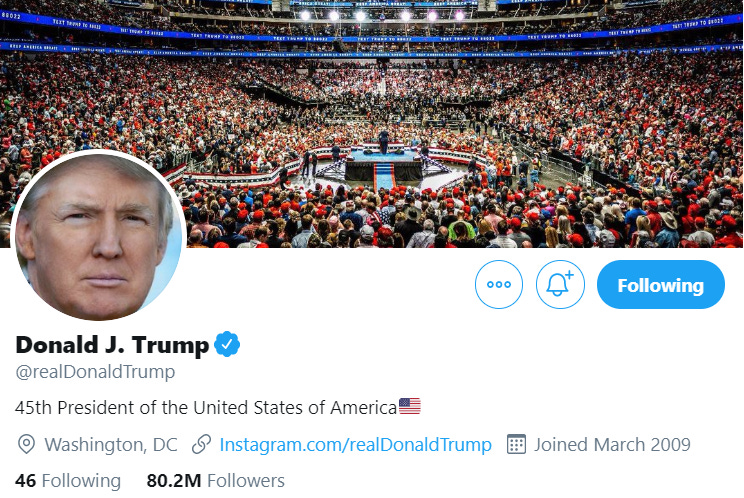I Don't Care About Donald Trump's Twitter Anymore
His account will never be deleted. Pretending otherwise is a waste of time.

Shortly after the 2016 election, at the behest of my then-boss, I turned on mobile notifications for Donald Trump’s tweets. At the time, the absurdity of Trump’s Twitter feed felt like a novel, frightening trend — a multiple-times-a-day reminder that this was the man America had just elected president. I read every Trump tweet from about January 2017 until October 2019, when I finally unplugged myself from the direct notifications a few weeks after Splinter died.
For the most part now I don’t read them at all. And at this point, nearly four years into Trump’s first term as president, I don’t think anyone else should either.
Trump’s tweets over the past few days have kicked off another news cycle over whether or not his conduct on the site warrants his account being suspended, particularly for his recent tirade against Joe Scarborough, where he dredged up the popular conspiracy that Scarborough was responsible for the death of Lori Klausutis, an aide who died in his office while Scarborough was serving as a congressman from Florida.
The extended Trump universe, including Don Jr., have been throwing Klausutis’s name around for months, which led her husband, Timothy, to plead with Twitter to remove Trump’s tweets from earlier today. Twitter refused to take the tweets down.
Here’s what a Twitter spokesperson told the New York Times:
We are deeply sorry about the pain these statements, and the attention they are drawing, are causing the family. We’ve been working to expand existing product features and policies so we can more effectively address things like this going forward, and we hope to have those changes in place shortly.
What Twitter is saying is that it is never going to delete Trump’s account. The site, led by CEO Jack Dorsey, has justified most of Trump’s behavior up to this point with the reasoning that anything the president says online is in the public interest. This is fine, if geopolitically inconvenient when it comes to Trump screaming at Iran or North Korea, but does not seem to apply when the information being shared is conspiracy theories about a woman’s death. And yet there is a zero percent chance that a platform that routinely struggles to perform basic moderation duties will kick the president of the United States off of its service.
That leaves most of us with two choices: read his tweets or ignore them entirely. At this point, I’m firmly in favor of the latter camp, even as a journalist. Four years in, there’s little more that Trump’s tweets can tell us that his actions offline don’t already. We know that Trump is a white nationalist; he’s indicated as much by, to pick just one recent example, praising Nazi sympathizer Henry Ford’s “bloodlines,” and by enabling Stephen Miller’s overt designs on a white ethnostate through actual policy. Whether or not he retweets an account that’s done some Nazi posts in the past doesn’t really matter that much at this point. Trump’s tweets are only relevant insofar as they inform actual policy or legal challenges to policy — such as enacting racist travel bans or prohibiting trans people from serving in the military.
We also know that little good has come from interacting with the president on Twitter either. Everyone who participates in the daily dogfight in his replies and mentions is only helping to further empower and enable his control over the platform. Most of them, like the blowhard #NeverTrumpers saying shit like “Fuck You, Sir” and that extremely weird doctor guy who seems to have a direct line to whoever was ghostwriting for the Krassenstein brothers, are just piggybacking on Trump’s consistent violation of norms to raise their own public profile, and none of it is remotely helpful. Debunking the president’s malarkey, for lack of a better word, is a full time job, but every unhinged rant does not need to be a news cycle in and of itself. The fact that it is only benefits one person — the guy doing the posts in the first place. The rest of us should feel free to log off.





Agreed. And really, it should be taken a step further: Just stop talking about him altogether. The less that his name is uttered, the less power it gives him. It’s really pretty simple. If and when he actually does something newsworthy, fine — tell us (and even then, just say “the president”). Otherwise, focus on actual news of consequence.